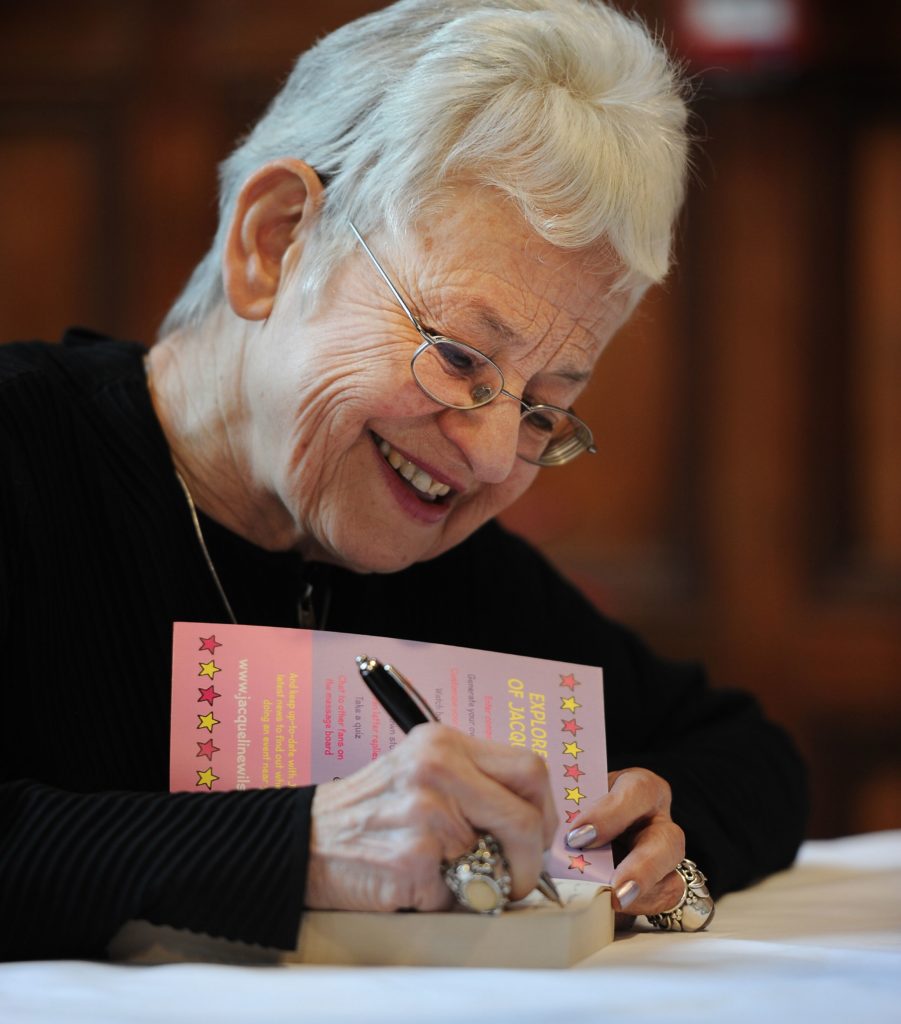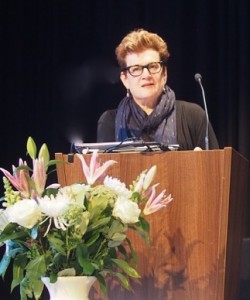It was the kind of bright, spring afternoon when anything seems possible, as excited children’s-literature enthusiasts filled the Homerton auditorium. Those lucky enough to attend the twelfth annual Philippa Pearce Lecture were treated to an engaging and illuminating talk by former Children’s Laureate, Jacqueline Wilson, entitled “Be Careful What You Wish For!”. Like her award-winning books, Jaqueline’s words were sharply perceptive, sweetly endearing and indicative of a writer who has not lost her ability to see the world through a child’s eyes.
She began by recalling an author’s conference she’d attended very early in her career. Slightly nervous and not knowing anyone else, she was grateful to be befriended at lunch by a woman who mentioned, in a very modest way, that she’d written “a book about a garden”. Only afterwards did Jacqueline realise that her new acquaintance was none other than Philippa Pearce. She was bowled over by the warmth, humility and genuine interest this celebrated author had shown to “a young beginner”.
Jacqueline went on to reflect on some of her own childhood reading experiences. She recalled staying with her grandparents and finding nothing to read except an old Maria Edgeworth book which included The Purple Jar. In this short story, Rosamond’s desire to own one of the enchanting purple vessels she sees in a chemist’s shop leads her mother to teach her a rather painful lesson about making prudent choices. Jacqueline explained that, whilst she didn’t mind “traditional ‘be careful what you wish for’ tales as such”, she has always “hated this lofty adult viewpoint in which adults always know best.” For her, writing for children is driven by the desire to capture a child’s point of view: their worries, woes and wishes
Jacqueline then considered various literary attempts to capture that world in general and the wished-for in particular. These included E Nesbit’s The Five Children and It – the inspiration for her own, updated version, The Four Children and It. Eventually she lighted on Philippa Pearce’s A Dog So Small as a shining example of a ‘Be Careful What You Wish For!’ narrative. This story of a boy who wishes for, imagines and ultimately receives a dog of his own artfully compels readers to consider “the joys—and the dangers—of living totally in the imagination” without ever becoming patronising or dismissive of the intense emotions children feel and the lessons they learn. (Lessons that many adults are still learning, whether or not they choose to admit it.) Philippa Pearce, Jacqueline suggested, was as wise as the granny in the book who says, “People get their heart’s desire, and then they must learn how to live with it”.
Wishing has evidently been a powerful force in Jacqueline’s own life. She told us how, as a little girl daydreaming about her heart’s desire of being a writer, she imagined not only writing – but also giving talks to packed auditoriums
Sitting at the head of an excited queue and signing books must be a very regular feature of this successful writer’s life. This evening’s queue was almost certainly unusual, being an exclusively adult one. But clutching well-loved favourites as well as shiny new purchases from the Heffers bookstall, and enthusiastically discussing favourite characters and scenes, this line of eager fans was perhaps not so very different.
“The worlds of my imagination and my reality have sort of interlocked together, and I think that’s the happiest part” says Jacqueline. ‘Jacky’ is one little girl who got what she wished for, and everyone who attended the Philippa Pearce lecture, as well as countless children and adults across the world, remain incredibly thankful for that.
Lilly Posnett ( MPhil Student, Critical Approaches to Children’s Literature, University of Cambridge)



